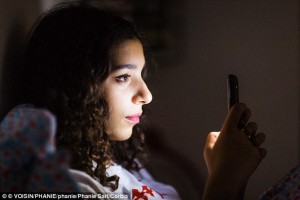 Today I asked four pupils from Chantry Middle School a very important question. How many hours of sleep on average do you get per night and how many hours of sleep do you think you need to stay healthy?
Today I asked four pupils from Chantry Middle School a very important question. How many hours of sleep on average do you get per night and how many hours of sleep do you think you need to stay healthy?
Pupil 1 -“I sleep 9 hours a night, but I think I need 10.”
Pupil 2 – “I sleep 4 hours a night, but I think I need 6.”
Pupil 3 – “I sleep 3 hours a night but I think I need 8.”
Pupil 4 – “I sleep 6 hours a night but I think I need 7 hours sleep a night.”
The average amount of hours sleep per night for these four pupils is 5.5 hours sleep, which is way under the recommended amount!
Your body works like a clock and has a scheduled sleeping time. When you are sleepy at night that is your body telling you to get rest and sleep; however, if you don’t go to sleep when you’re tired it will make you even more tired during the day.
Every one of the pupils I interviewed said they would get to sleep a lot easier if they weren’t disturbed by their phones and electronic devices. The actual amount of sleep needed for teenagers is 8.5 hours every single night with no exceptions.
Not having enough sleep can affect your life and your family in many different ways. It can change the way you drive: over 100,000 car crashes a year are because of drowsiness due to no sleep! It can affect school and yours marks could drop as well as affecting your mental and physical health. Parents need to make sure their children gets at least 8 hours of sleep a night.
Oxford University have proved that starting lessons in school at 10am will improve children’s grades as they are less tired and drowsy in first and second lesson. But if your school doesn’t start at 10, here are some ways to make sure you have the best night’s sleep:
Your room must be cool as sleeping in a hot room can disturb the body.
Try not to drink energy drinks or caffeine after 4pm as it will give they will fuel the body and you will have too much energy to fall asleep.
You need to make sure that if you have a nap it only lasts for less than two hours as it could affect how you sleep that night.
You need dim lights or, even better, no lights at all.
If you really struggle to fall asleep you should seek medical advice.
Sleep tight.
Grace Fisk, 13.

